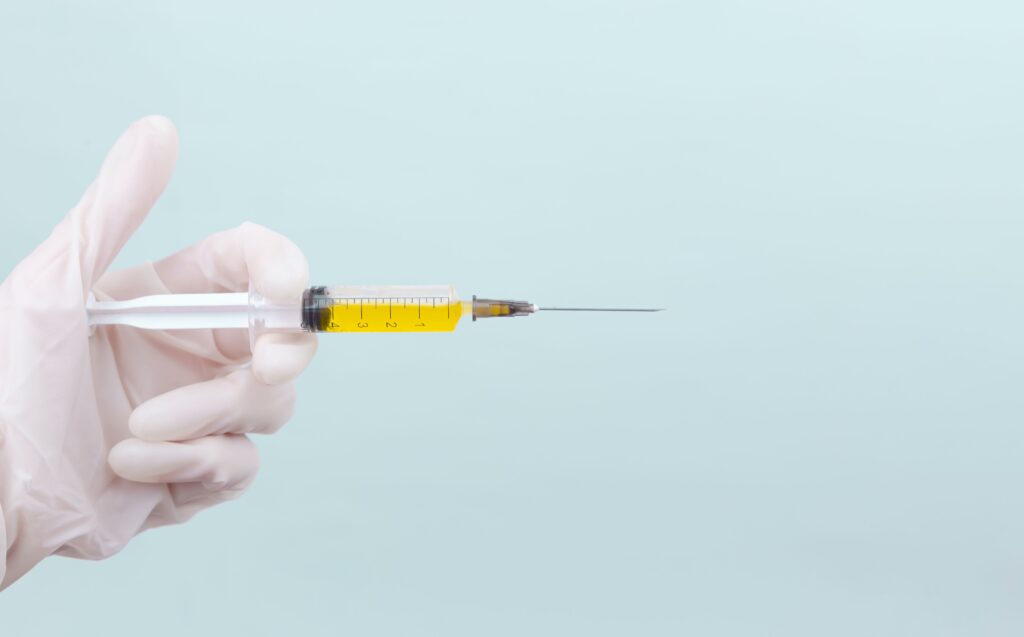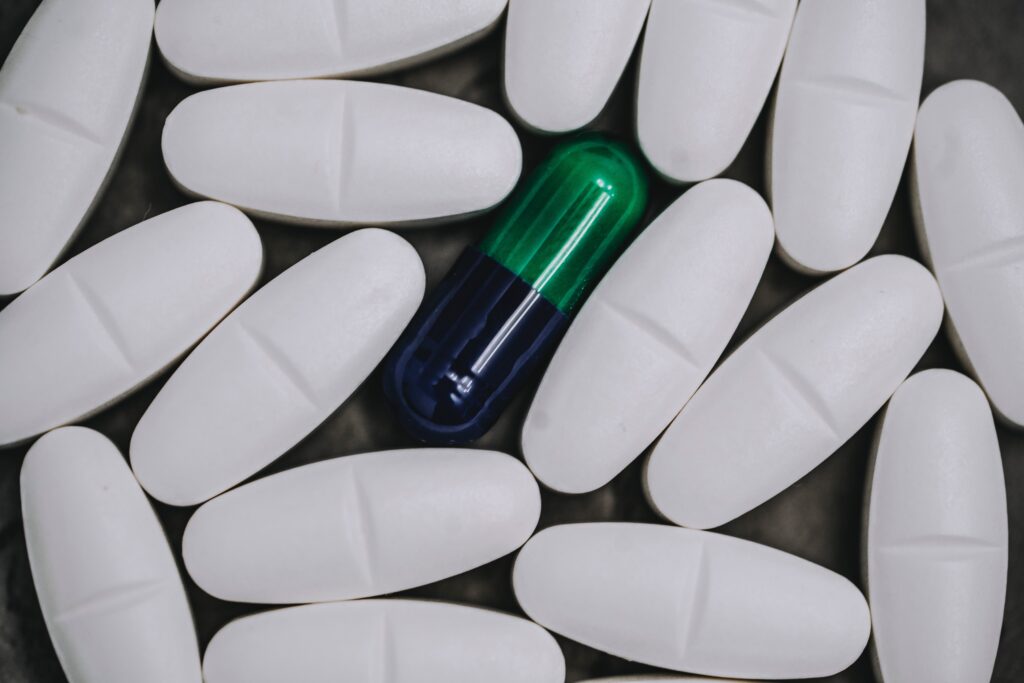Peptides, Compounded Meds and More: All the Other Ways (Besides Ozempic) People are Losing Weight
September 14, 2023

News flash! It’s not just Ozempic that’s helping all those people you know lose weight.
Increasingly, people are also looking into compounded medications, peptides, and other medication blends to help them shed pounds.
Let’s talk about it.
First things first: Always consult your own doctor before taking any supplement or medication, or changing your health routine. (Duh.)
Now that the disclaimer is out of the way, let’s talk about a guest I had on the podcast a couple weeks ago. Samantha Blakeney works in marketing for two compounding pharmacies in the New York City area, New Drug Loft and VLS Pharmacy.
When my episode All About Ozempic went live, I was connected with Samantha, who was telling me that those brand-name medications aren’t the only way people are losing weight–that compounded medications are also an option.
In this post I’m running through a few things I learned from our interview, but you’ll have to check out the whole interview to hear specifics and tons more details on what your other weight loss options are. Listen below, and read on!
What is a Compounded Medication, and How Can They Be Used for Weight Loss?
This is a complicated topic and it’s worth stating right off the bat that each state has different requirements when it comes to licensing compounding pharmacies, which can dispense these types of weight-loss medications to patients.
Samantha explains:
“In all states, a pharmacist can take additional training at a variety of different places. … Our compounding is performed by licensed pharmacists [with] a doctoral degree. And then they go on and do additional training to learn how to compound. [The training is] extensive. … In some states, the Board of Pharmacy will allow technicians to compound.”
Those pharmacists then come up with personalized blends of medication–prescribed by doctors–to meet your weight-loss needs.
Why Choose a Compounded Medication for Weight Loss Over Ozempic?
Samantha is quick to point out that those FDA-approved drugs like Ozempic do have the benefit of having been thoroughly researched. But the side effects–some of which can include GI disruption and even “Ozempic Face”–are unpleasant.
That’s where a compounded medication can come in.
“There’s nothing equivalent [to these drugs.] But it’s also important to remember that before this GLP-1 craze, people were still losing weight with other drugs. And that’s when we talk about some of those.”

What are Some Compounded Medications People are Using to Lose Weight?
There’s one combination of drugs that Samantha says is showing promise in their practices, and it’s a combination of a commercially-available drug, plus vitamins.
“One of the things that we make that is on fire right now–that people absolutely love–is a combination of low dose Naltrexone and a variety of vitamins that can be added to it. So you can add things like B 12; you can add alpha lipoic acid; Co-Q 10.
“Naltrexone is a drug that is commercially available, but the lowest dose available is 50 milligrams, and that’s used for addiction. … We compound it of extremely low doses starting at 0.5 milligrams. And it’s take it’s titrated up very slowly. It means the dose is slowly increased over time to mitigate any potential side effects and to manage the rate at which weight is lost.”
What are the Side Effects of Compounded Naltrexone and Vitamins for Weight Loss?
Samantha says she herself is on this combo, and has seen success losing weight she’s gained from dealing with PCOS.
“This low dose Naltrexone has been compounded for decades. The side effects we see? If the starting dose is too high … there can be GI upset, maybe some dizziness. Some people say they’re thirsty. And that’s pretty much it. But if the dosing is handled appropriately, there’s literally no side effects.”
A Warning About Taking Peptides for Weight Loss
You may hear people talk about how they’re losing weight with “peptide blend” injectables. However, Samantha is wary about this approach.
She says that because Ozempic and other name brand drugs are patented, no one is has that exact formula. What you’re actually getting is likely coming from a different country where quality control is lower, and knowing what’s really in the formula is impossible.
“It could be anything. And this is why you need to know where your medication is coming from.
“Now, there are suppliers in Canada and China and all over the world. India is a very large supplier of active pharmaceutical ingredients. But if they’re coming into this country, and they’re not being monitored by the FDA, and they’re not going through a supplier such as a PCA, which does purity potency, and all this additional testing, you don’t know what you’re getting. … I say absolutely do not take any injectable peptide, unless it is a commercial drug.”

How to Tell if Your Compounding Pharmacy is Following Safety Standards
As far as New Drug Loft and VLS Pharmacy, they use FDA-approved suppliers. But that may not be the case for all compounding pharmacies, which means there can be some quality control issues.
Why does FDA-approved status matter? Samantha says, “…because there’s trackability [and] traceability. So if a physician wants a certificate of analysis, or a Material Safety Data Sheet on every single ingredient that we put into your medication, we can provide that.”
If you have any questions about the quality of medications at a compounding pharmacy, there’s a way to check if your pharmacy is meeting safety standards.
“Google the name of the pharmacy and type in ‘FDA 483.’ That will lead you to a their database. A 483 is like a demerit; you’re on the naughty list. If you receive a 438, some require corrective action plans, and some of them are so severe that the pharmacy is shut down.”
© 2022 WGT Designed by leche studio
PRIVACY & TERMS
CONNECT
NAVIGATE
Home
Blog
Work With Me
More From Us
Want to be the first to get the latest updates and news?
About
Podcast
Contact